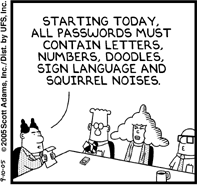It potentially can help verifying that a recorded message/digital data originates from you (or any other person). It can't help with the misinformation in the data itself. See also: https://lemm.ee/post/23366395
Squire1039
That's a good turtle friend.
I guess you shouldn't expect any tech company to provide anything "forever," as forever for them, and the fine prints, mean totally different things than what you and I think it is.
I'll cry for Australia and Taiwan. I guess you can't remain in the first world forever. 🤷♂️ /s
This is one of my most favorite /c on Lemmy. I have not seen CSAM since the last lengthy and regrettable CSAM-attack takedown. I have not seen posts about people being encouraged to leave either. So, you are doing great for some of us. Thanks.
Can you curse regularly?
Haha, apparently, there is no direct law against cursing, but they can still throw these at you:
Disorderly behavior: Under the Miscellaneous Offences (Public Order and Nuisance) Act, using abusive or insulting language in public can be considered disorderly behavior. This offense carries a maximum penalty of 6 months imprisonment, a fine of up to S$2,000, or both. The key factors here are the volume, tone, and target of the language. Shouting profanities at someone in a way that creates a disturbance could fall under this category.
Abusing a public servant: The Protection from Harassment Act protects public servants from verbal abuse, including threats and insults. Using abusive language towards a police officer, teacher, or other public service worker while they're performing their duties is an offense with a maximum penalty of 12 months imprisonment, a fine of up to S$5,000, or both.
The above comment also is in SGD, not much solace.
I bet they don't have to do too much to enforce some of these laws. Singapore is one of the places (along with Japan) with really low crime rate. The legend (see youtube) is that, if you leave your iPhone on a table in a coffee shop, you can come back to claim it a few hours later. A good part of it is probably because of socioeconomic reasons.
Otherwise, I also bet it's just your getting caught by the authorities (with whatever Orwellian technologies they use to catch you) and your being reported by people surrounding you.
I must say, you are a fine-avoiding citizen! ;-)
There are some functions like that, like Passkey signing. For Bitlocker, the encryption/decryption key is transferred to the CPU (and RAM) in order for it to operate. The problem described here has been around for a while, but putting it on a key like that makes the attack method available to "everyone". There has been a solution for a while too: 1) put in pre-boot Bitlocker PIN, and 2) use integrated TPM like the article mentions.
Meanwhile, other laws in Singapore (with some exceptions):
- No Smoking in Public. Fines up to $200, increasing to $1,000 if taken to court.
- E-Cigarettes are Prohibited. Fines up to $10,000, imprisonment up to 6 months; subsequent offence up to $20,000, mprisonment up to 12 months.
- No Eating or Drinking on Public Transport. Fine up to $500.
- No Playing Musical Instruments in Public. Fine up to $1,000.
- No Connecting to Someone Else’s Wi-Fi. Fine up to $10,000, imprisonment up to 3 years; subsequent offence up to $20,000, imprisonment up to 5 years.
- No Importing or Selling Chewing Gum. Importation fine up to $100,000 or imprisonment up to 2 years; subsequent offence up to $200,000 or imprisonment up to 3 years. Sale fine up to $2,000.
- No Drinking After 10.30pm. Fine up to $1,000 (first offence), up to $2,000 and/or imprisonment up to 3 months (repeat offence).
- Don’t Feed the Pigeons. Fine up to $500.
- Don’t Feed Any Wildlife. Fine up to $5,000, or up to $10,000 for subsequent offences.
- Flush the Toilet. Fine up to $1,000.
- No Littering. Fine up to $2,000 (first conviction), $4,000 (second conviction), $10,000 (subsequent convictions).
- No Singing Explicit Lyrics. Imprisonment up to three months and/or a fine.
Life is grand!


Haha. So, a doublet is in a way, like a dress with a skirt. The longer one covers your exposed crotch. Breathtaking indeed!